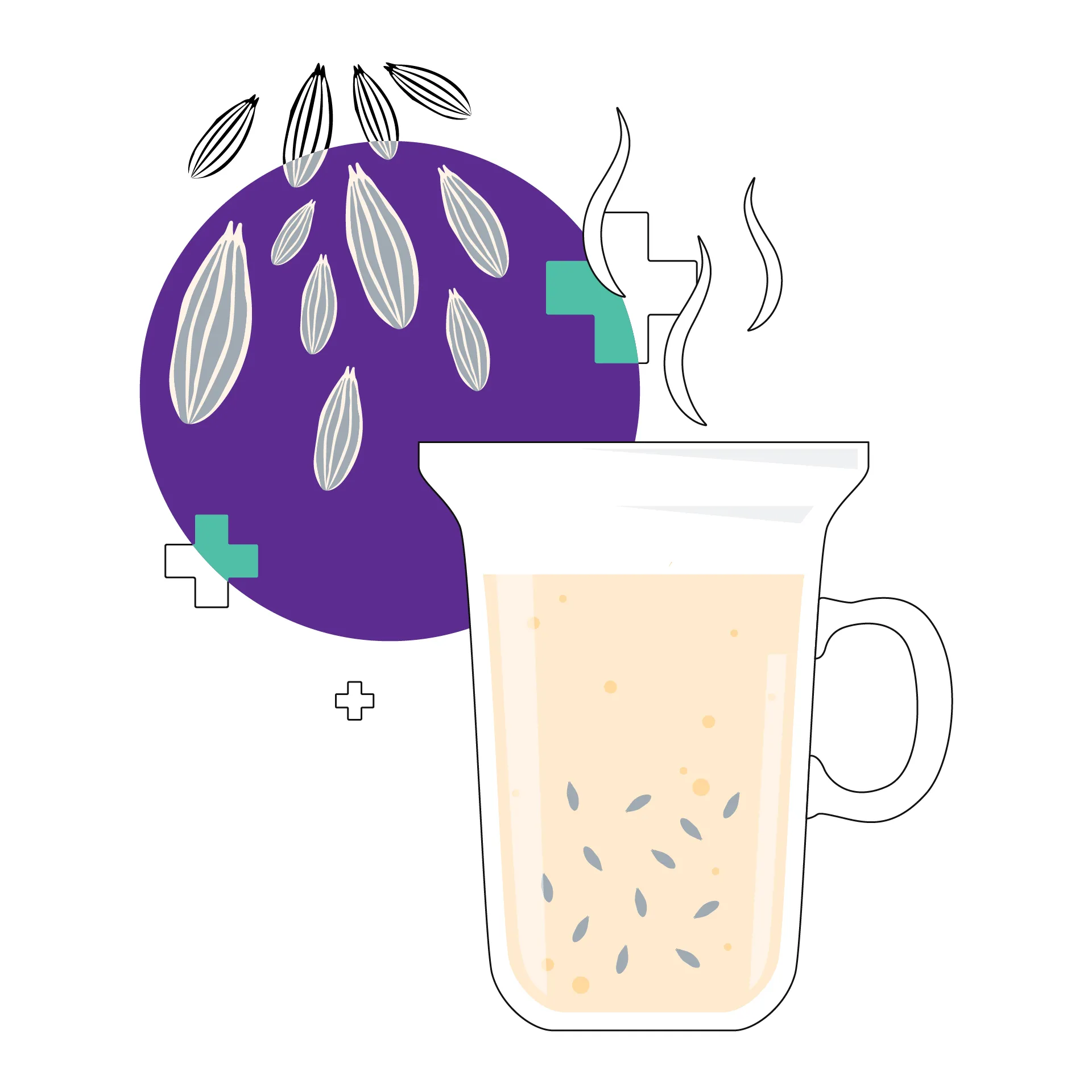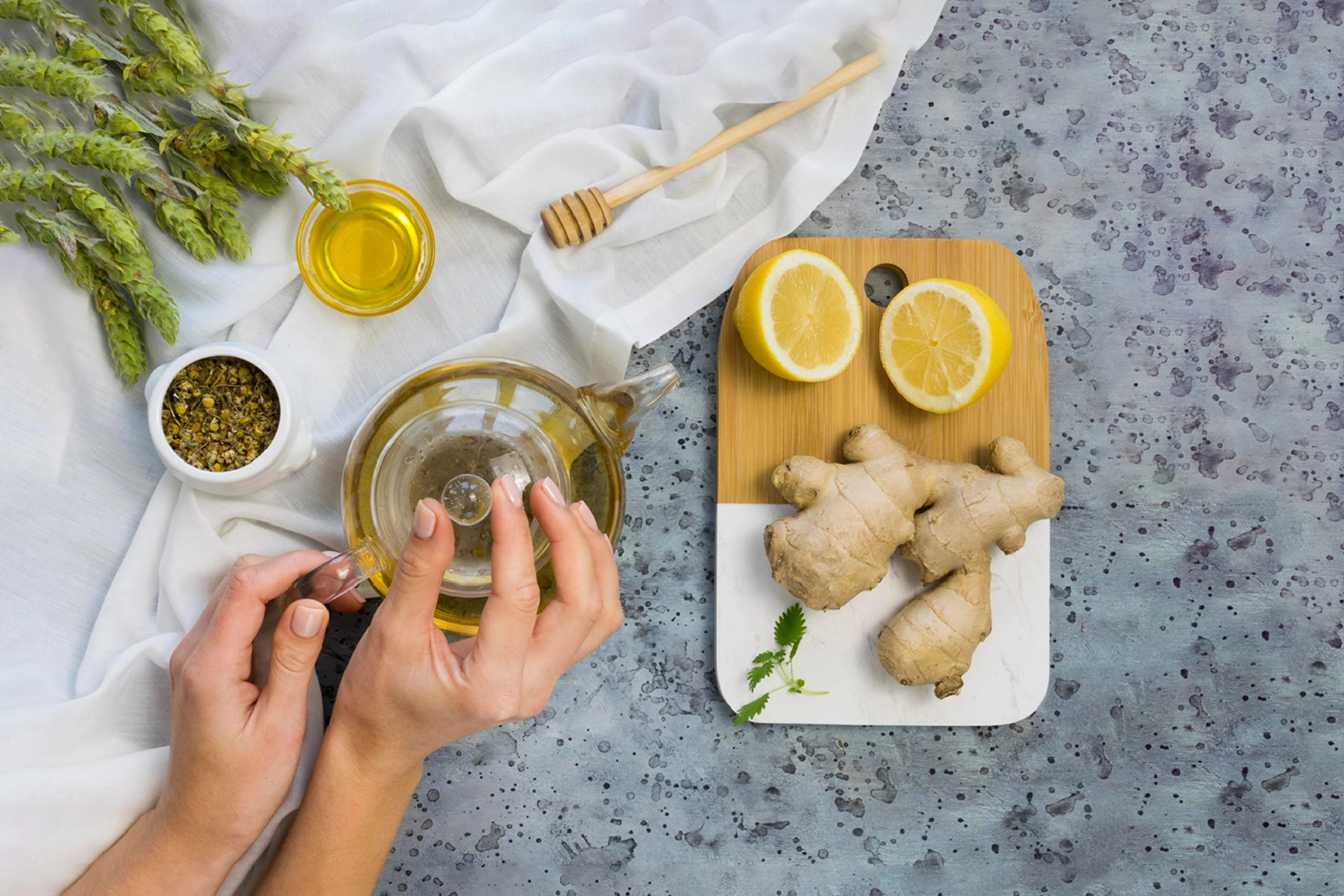Ayurveda | 7 min read
Ajwain: Uses, Benefits, Recipes, Precautions and Side Effects
Medically reviewed by
Table of Content
Synopsis
Ajwain is a rich source of thymol, a compound with antioxidant and anti-inflammatory properties. So, if you're looking to add a little flavour to your food or want to try a spice with potential health benefits, ajwain is a good option to consider.
Key Takeaways
- Ajwain is an herb that has been used in Indian cooking for centuries
- Ajwain is used to add flavour to various dishes, as well as to aid in digestion
- Ajwain has many potential health benefits, but it can also cause side effects in some people
Ajwain is a herb that has been used in Indian cooking for centuries. It is also known as carom seeds or bishop's weed. The seeds are small and have a strong, pungent flavour. Ajwain is used to add flavour to various dishes, as well as to aid in digestion. It is also used as a home remedy for various health conditions, such as colds, stomach pain, and toothaches.
Ajwain has many potential health benefits, but it can also cause side effects in some people. Therefore, it is important to consult a healthcare provider before using this herb.
What is Ajwain?
Ajwain, also known as carom seeds, is a spice commonly used in Indian cuisine. The seeds have a faint anise-like flavour and are often used to add flavour to bread and curries. Ajwain seeds are also used in Ayurvedic medicine and are thought to have numerous health benefits.
Ajwain is a rich source of thymol, a compound with antioxidant and anti-inflammatory properties. Thymol is also known to have antimicrobial effects, which means it can help protect against infections. Ajwain is also a good source of fibre, vitamins, and minerals. If you're looking to add a little flavour to your food or want to try a spice with potential health benefits, Ajwain is a good option to consider.
History of Ajwain
The history of Ajwain is long and complex, dating back to ancient times. Ajwain has been used in Ayurvedic medicine for centuries and is mentioned in ancient texts such as the Charaka Samhita. In recent years, it has also become popular in Western medicine. Studies have shown that Ajwain is effective against various bacteria and fungi, making it a valuable tool in the fight against infections [1].Ajwain is still used in Indian cuisine today, and it is also used in Ayurvedic medicine. The herb is thought to have numerous health benefits, including aiding digestion, reducing inflammation, and relieving pain.

Chemical Composition of Ajwain
Ajwain, also known as carom seeds, is a widely used spice in Indian cuisine. Though it is used in small quantities, it has a strong flavour and is known for its medicinal properties. Ajwain is rich in essential oils and contains thymol, a compound with antibacterial and antifungal properties.
The main component of Ajwain is thymol, a compound that gives the spice its distinct flavour. Thymol is also responsible for the herb's medicinal properties. Ajwain also contains other compounds, such as phenols and terpenes. Ajwain is a good source of vitamin C, calcium, and phosphorus.
In recent years, studies have shown that Ajwain can also be effective in reducing pain and inflammation associated with arthritis [2]. Therefore, reducing arthritis pain by adding Ajwain to your diet may help to improve your symptoms.
Additional Read: 7 Effective Ayurvedic HerbsAjwain Uses
Ajwain, also known as carom seeds, is a spice commonly used in Indian cuisine. But did you know that Ajwain has numerous health benefits? Here are just a few of the ways that Ajwain can improve your health:
- Ajwain is a natural digestive aid. It can help to relieve gas, bloating, and indigestion
- Ajwain is an anti-inflammatory agent. It can help to reduce swelling and pain
- Ajwain is an expectorant. It can help to loosen mucus and clear congestion
- Ajwain is a diuretic. It can help to promote urination and reduce water retention
Ajwain, as ayurvedic medicine for high bp, is often used and other cardiovascular diseases. It has a strong, pungent flavour that is somewhat similar to oregano. It is often used in Indian cooking, as well as in Ayurvedic medicine. Ajwain is a good source of vitamins and minerals and has many potential health benefits. For example, it has been shown to improve digestion, relieve pain, and reduce inflammation. Additionally, some studies suggest Ajwain can help boost immunity and fight infections.
Additional Read: Ayurvedic Medicine for High BPPotential Benefits of Ajwain Include:
- Aiding digestion
- Reducing inflammation
- Relieving pain
- Reducing fever
- Boosting immunity
There is growing evidence that Ajwain for weight loss is effective. Various studies have shown that Ajwain can help to boost metabolism and burn more calories. Additionally, Ajwain is a natural appetite suppressant, which can help to reduce cravings and overeating.
Additional Read: From Immunity to Weight Loss
Ajwain Side Effects
The most common side effect of Ajwain is gastrointestinal distress. Ajwain can cause indigestion, heartburn, and nausea. If you experience any of these symptoms after consuming Ajwain, it is best to avoid them in the future. Ajwain can also interact with certain medications. If you are taking any medication for diabetes, blood pressure, or heart disease, you should avoid Ajwain as it can potentially interfere with the efficacy of these medications.
Ajwain is also known to interact with certain medications, including blood thinners and diabetes drugs. If you are taking any medication, it is important to speak with an ayurvedic doctor before adding Ajwain to your diet.
Ajwain Precautions
While Ajwain is generally safe for most people, a few precautions should be taken when consuming it. Ajwain contains thymol, which can be toxic in large doses. It is also a strong diuretic, so it should be used in moderation if you suffer from dehydration. Lastly, Ajwain can aggravate digestive issues like heartburn and indigestion. If you are concerned about consuming Ajwain, please consult a healthcare professional.
Ajwain Interactions
Ajwain is generally safe to consume, but there are a few things to keep in mind. It can interact with certain medications, so it's important to speak to your doctor via an online appointment if you are taking any medications. Ajwain can also cause stomach upset in some people, so it's best to start with a small dose and increase it as needed.
The Science Behind Ajwain's Medicinal Properties
The science behind Ajwain's medicinal properties is still being studied, but it is thought to work by stimulating the digestive system and by producing an expectorant effect that helps to clear the respiratory tract. If you're interested in trying Ajwain for its medicinal properties, you can purchase it online or at your local Indian grocery store.
How to Use Ajwain?
The seeds have a strong, pungent flavour that is often used to add flavour to curries and other dishes. If you're not familiar with Ajwain, you may be wondering how to use it. Here are a few tips on how to use Ajwain in your cooking:
- Add Ajwain to masala mixes or spice blends
- Toast the seeds before adding them to a dish
- Add Ajwain to cooked dishes like curries, rice, and dals
- Use Ajwain to make a simple ajwain powder that can be used as a spice or seasoning
Home Remedies for Indigestion
To use Ajwain for indigestion, add a teaspoon of seeds to a glass of water and drink it before meals. You can also fry the seeds in ghee and eat them before meals. For best results, use Ajwain regularly for a few weeks.
Additional Read: Effective Home Remedies for IndigestionAjwain Recipes
Ajwain, also known as carom seeds, is a common ingredient in Indian and Middle Eastern cuisine. These small, oval-shaped seeds have a sharp, pungent flavour that is somewhat reminiscent of thyme. Ajwain is often used to flavour bread, vegetables, and meat dishes.If you're looking for a new ingredient to add to your cooking, why not try Ajwain? Here are some recipes that feature this unique spice:
- Ajwain-spiced chicken
- Ajwain-flavoured potato and pea curry
- Ajwain flatbread
- Ajwain-spiced lentils
- Ajwain rice pilaf
Many recipes include Ajwain as an ingredient. Some of these recipes are for health tonics, and some are for dishes that can be eaten. But, regardless of the recipe, Ajwain can be a great addition to your diet. Remember, maintaining good health is important. But sometimes, we fall sick and need medical help. That's why Bajaj Finserv Health is here for you.
References
- https://www.researchgate.net/publication/353453321_Antibacterial_activity_of_ajwain_essential_oil_against_some_zoonotic_bacteria#:~:text=Ajwain%20essential%20oil%20exhibited%20antimicrobial%20activity%20against%20all,%C2%B5g%2Fml%20for%20Gram-positives%20and%2080%20%C2%B5g%2Fml%20for%20Gram-positives.
- https://www.researchgate.net/publication/317041607_Health_benefits_of_Indian_aromatic_plant_Ajwain_Trachycpermum_ammi
Disclaimer
Please note that this article is solely meant for informational purposes and Bajaj Finserv Health Limited (“BFHL”) does not shoulder any responsibility of the views/advice/information expressed/given by the writer/reviewer/originator. This article should not be considered as a substitute for any medical advice, diagnosis or treatment. Always consult with your trusted physician/qualified healthcare professional to evaluate your medical condition. The above article has been reviewed by a qualified doctor and BFHL is not responsible for any damages for any information or services provided by any third party.





